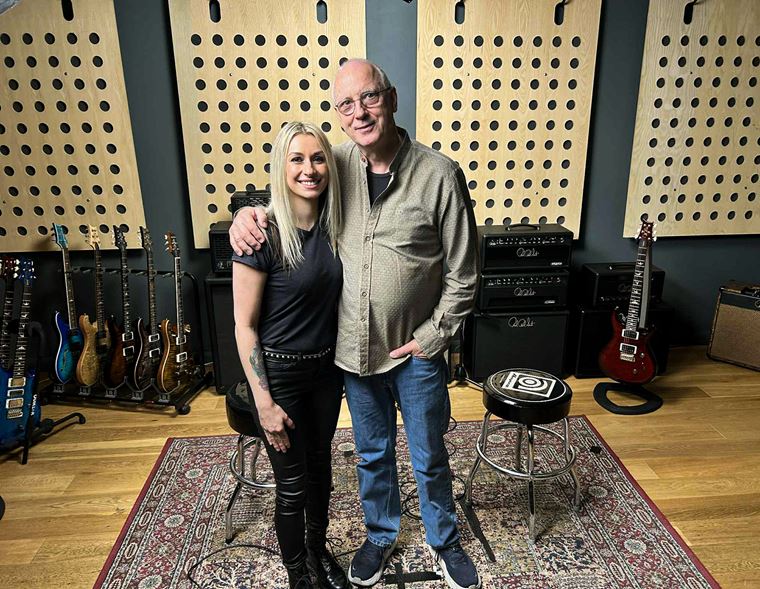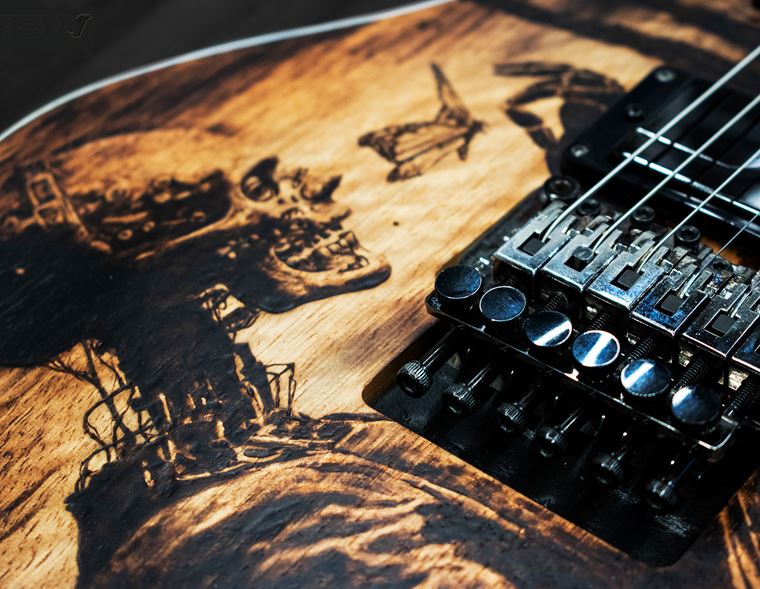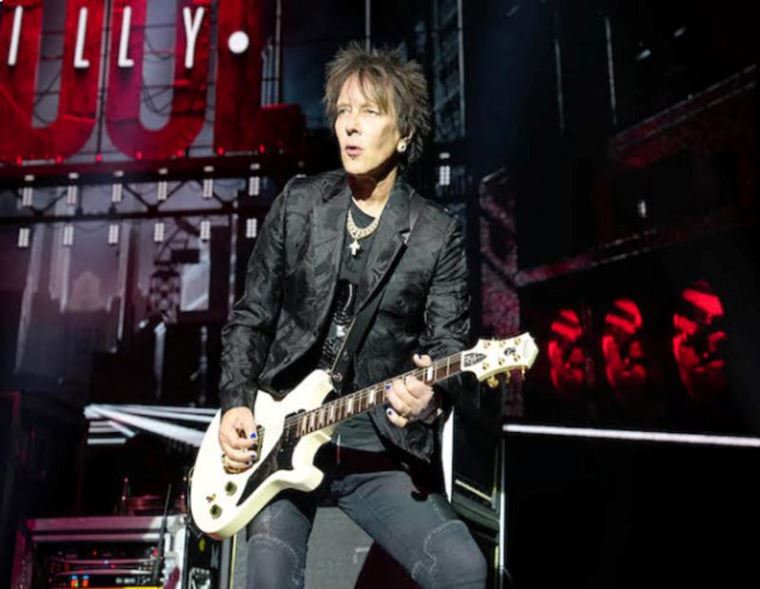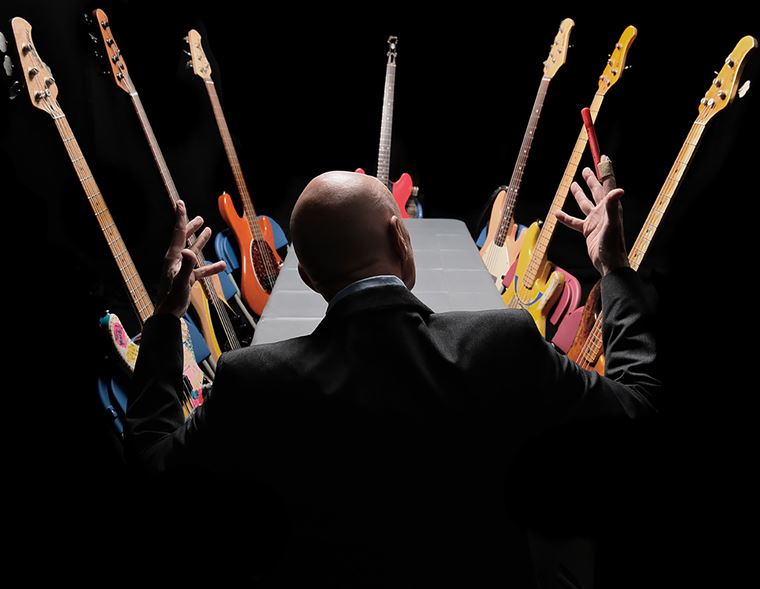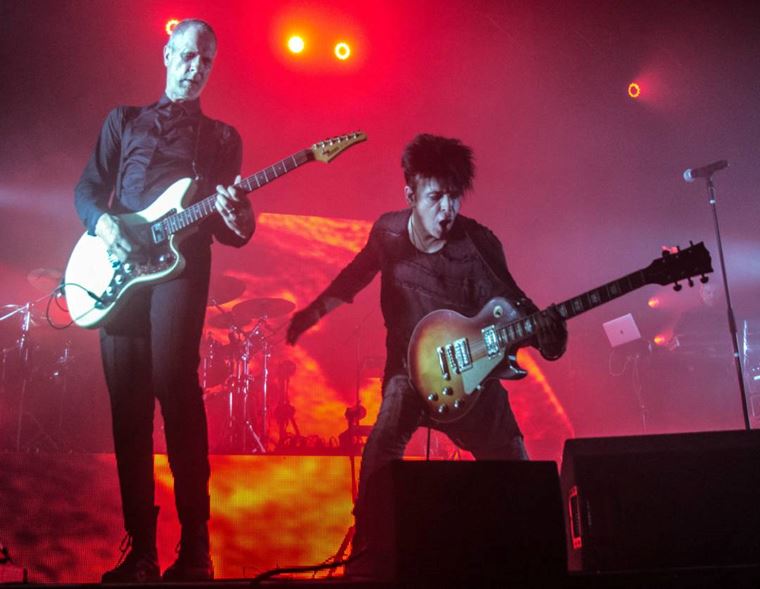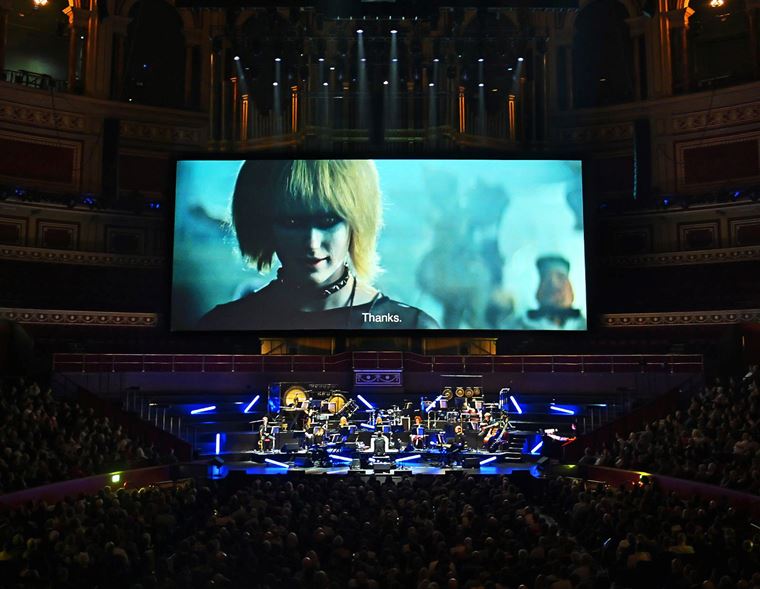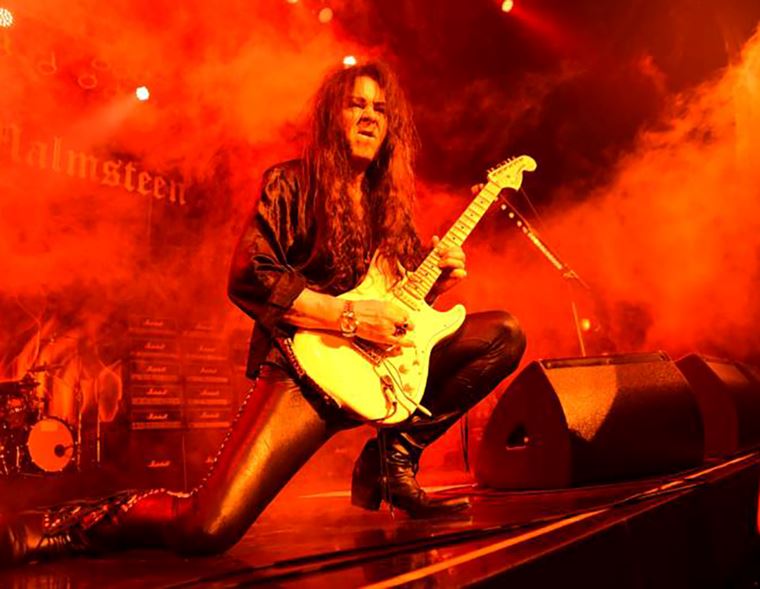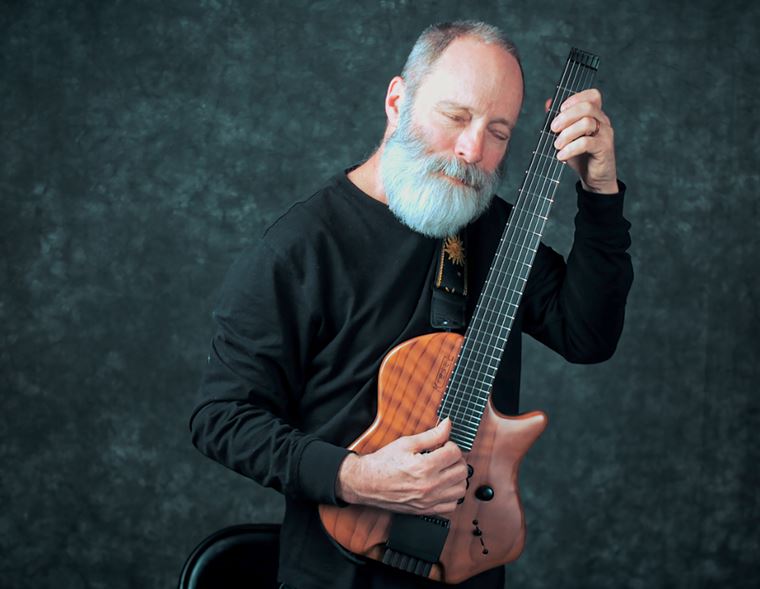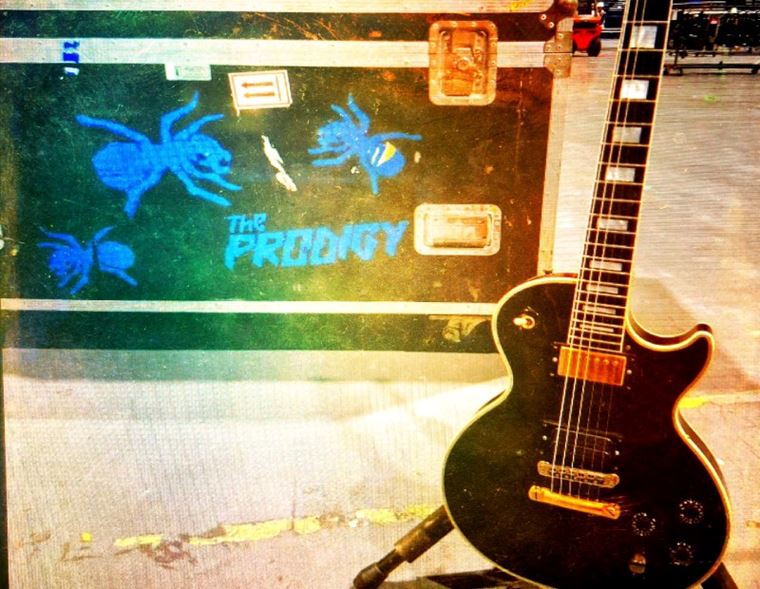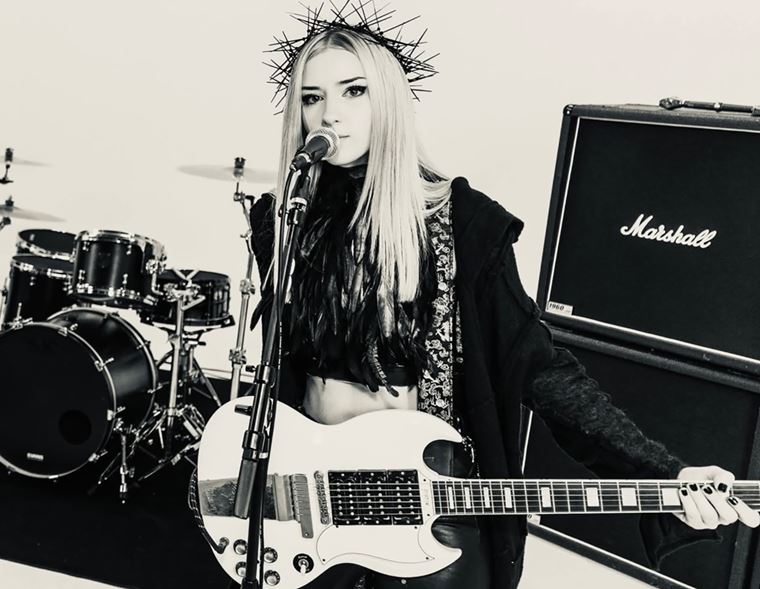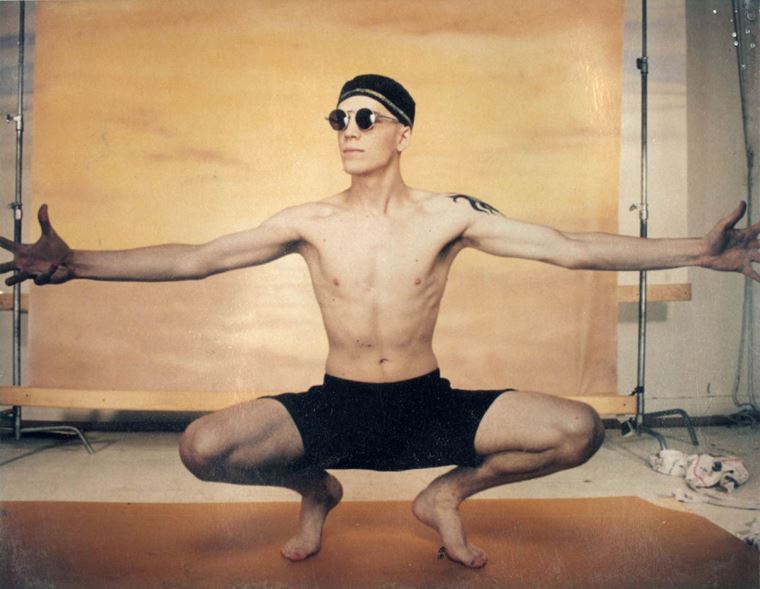WATCHHOUSE's Andrew Marlin Talks to guitarguitar!
It’s a bold move to rename your band twelve years into a successful career.
After over a decade of building up a reputation (and a successful brand) with a large worldwide audience, there’s a real risk that confusion can throw a large portion of listeners off-course. This is something that Mandolin Orange, the Americana group led by husband-and-wife team Andrew Marlin and Emily Frantz, faced head on. The band name, to them, was something that no longer reflected the music they created or the world they worked hard to build. It had to go!
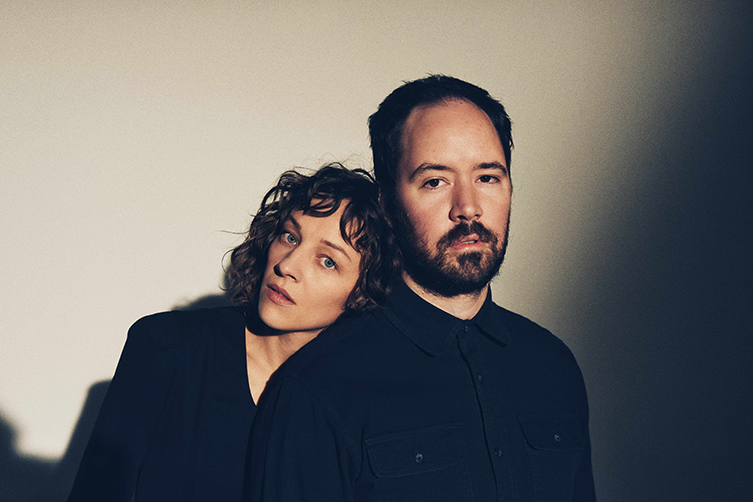
(Photo: Shervin Lainez)
As of this year, Mandolin Orange is now known as Watchhouse, a name that Marlin concedes is much more appropriate. Why? Read on and you’ll learn it all! We had the good fortune recently to enjoy a stimulating and interesting chat with Andrew via Zoom from his home in North Carolina. The occasion was to discuss their forthcoming album, also called Watchhouse, which is due for release on August 13th. We found Andrew to be a very friendly, humble and interesting person to talk to. Our conversation took in Blackbeard the pirate, the magic of the great American wilderness, and songwriting strategies for when you are raising a baby daughter!
Andrew Marlin Interview
Guitarguitar: So, this is the first album under the new name Watchhouse. Were there any difficulties or confusion after you decided to change the name from Mandolin Orange?
Andrew Marlin: Um, definitely. (laughs) But, it’s all worth it, you know what I mean? Basically, we’re trying to set some new intentions with the band name and I think that, to us, was more important than any of the follow up questions that were gonna come from that or, you know, the fans not really understanding at the beginning. I think once people see that it really was just coming from a place of trying to stay true to ourselves, that people will be a little more willing to come on board. For the most part, it’s been really positive and we’ve been really happy with it.
GG: Good! The name ‘Watchhouse’ is quite evocative for me. I don’t know if you like talking about where the name comes from, but it’s seems to have connotations of, like, a treehouse, or a place you’d maybe go to as a kid. Is it that kind of idea?
AM: Yeah, it was actually a hunting cabin in the Chesapeake Bay, which is, I guess, right around Virginia. When I was growing up, I’d go up there with some friends. He just called it the Watchhouse because it was this little house built on stilts in a marsh, you know what I mean? So, if you go out there, you really have to be either in the dock on a boat, or in the house. You can’t hang out on the marsh! But we’d just go out there and go hunting, hang out till the wee hours of the morning, and because it’s in the middle of the marsh, you can see every star in the sky. It was just a great place to be with your friends, and to be with yourself, just to kind of be away from everything.
When we were trying to figure out what to call the band, that image kept coming into my head: just standing on the dock looking up at the stars and being about two miles out from the shore, so you can still see the lights from the shore but it just seemed so distant, you know?
GG: Yeah!
AM: To me, it just made total sense one day. ‘Watchhouse’! Let’s call it that because that’s exactly where I want people to go in their minds when they listen to our music: to get away from everything and go to that place where you can kinda look back on the real world and it seems a little distant, a little magic, you know? Surreal, almost.
GG: That seems to be how it is, for sure: that slightly magical lens to look through. I wonder...I’m gonna ask about location. Being that you are an American and you make music that is predominantly Traditional American – to a general degree- as an outsider to that, as a person from the UK, that stuff already has a lot of inherent magic to me. It’s kind of like listening to The Band or to Mercury Rev, there’s a kind of ‘cosmic-ness’ to it. I wonder if the location plays a part? I read in some of the literature from your PR people that you guys went out to a place called Smith Mountain Lake. Was that for writing? And therefore, the question that I’m going to get to eventually (laughs) is, does location play a big part in your writing process?
"That's exactly where I want people to go in their minds when they listen to our music: to get away from everything and go to a place that's a little magic."
AM: Um, probably! I guess because we live here it’s hard to say. I think it would be a lot easier to step away from this place for a long time and look back on what’s magical about it. But, speaking as someone who’s just immersed in this area for, like, my whole life – this is where I grew up and continue to live, which is right in North Carolina in the Peak Mountain region - it’s just a beautiful place to live. The surroundings, the forests are absolutely gorgeous and breathtaking in some parts and you can just walk for miles into the woods and get completely lost, which to me is magical because there’s not many places in the world you can do that these days.
I don’t know, I think there’s an inherent darkness that also surrounds the music here because, I mean relatively in terms of countries, this is not a very old country. I think, for a lot of that history, there’s been a lot of war, a lot of grief and a lot of death, especially in the past few years. And so, I think a lot of that seeps its way into the music as well. I think that adds a mysticism to the music, just those ghosts. They keep hanging around.
GG: Yeah, yeah, certainly. And also, I wasn’t sure if you were from Virginia or North Carolina but they’re bordering each other, aren’t they?
AM: Mm-hmm.
GG: So, in Virginia – I could be so wrong about this, but just when you’re talking about those ghosts and the history – you have that whole Roanoke situation (a whole village full of early settlers went missing without a trace - Ray) that occurred in Virginia. And then, I think it’s in North Carolina – I don’t know how close to the coast you are – but they had the ship of Blackbeard, you know, the Queen Anne’s Revenge, that was found just off the coast, so there’s loads of mythology happening there, isn’t there?
AM: Oh yeah! I grew up in Eastern North Carolina, not too far from the coast and so Blackbeard was definitely a big part of my growing up! I had all the action figures and the books.
GG: Nice!
AM: Yeah, but I think all of that works its way into the culture and into the songs. Just that kinda surreal state of the imagination as a kid, that goes with you, and that’s one of my favourite parts about songwriting. I get to harness some of those almost child-like feelings, you know? Especially writing at night, which I usually do, in that dream state, all of those parts of me kind of come to the surface and make their way into the music.
GG: Amazing! Amazing. Yeah, now, there’s a particular song I’d like to return to later on but since you just spoke a little about your writing process there, and how you write at night, I understand that recently you became a father to a little daughter, so congratulations!
AM: Thank you!
"The forests are absolutely breathtaking in some parts. You can just walk for miles into the woods and get completely lost, which to me is magical because there's not many places in the world you can do that in these days."
GG: No problem! I wondered: has that made you have to change your writing habits?
AM: Yeah, a little bit. Now, if I decide to stay up late and write a song, I have to surrender to knowing that I’ll also be still getting up around 6.30 in the morning! (laughs) I basically just have to make a conscious decision not to sleep that day. But it works out: she’s a good hang and easy to be around. Even going on little sleep, she’s not too high-maintenance there, so.
GG: Ah, that’s good news. So, would you have preferred to write in the evenings anyway? Is that your way of doing it?
AM: I think so, I usually try to be in the thick of everything that’s going on, so I’m always staying in touch with my friends and seeing what’s going on in town, so I think at night, especially between the hours of 12-4 in the morning when the world feels like it’s slowing down and sleeping, I almost feel like I’m stealing that time away, you know? There’s a lot of creativity just kind of floating around in the air that is not being used. It seems that I’m able to just kind of tap into that process a little easier during those hours.
GG: Fantastic! So, I know that you tend to play both mandolin and acoustic guitar. Do you have a preference for which instrument you write with?
AM: Yeah I like to write with the guitar. Usually, if I pick up the mandolin, I’ll just start playing fiddle tunes (laughs). It’s like I have to access a different part of my brain, and the guitar always adds just a really nice rhythmic palette for writing melodies.
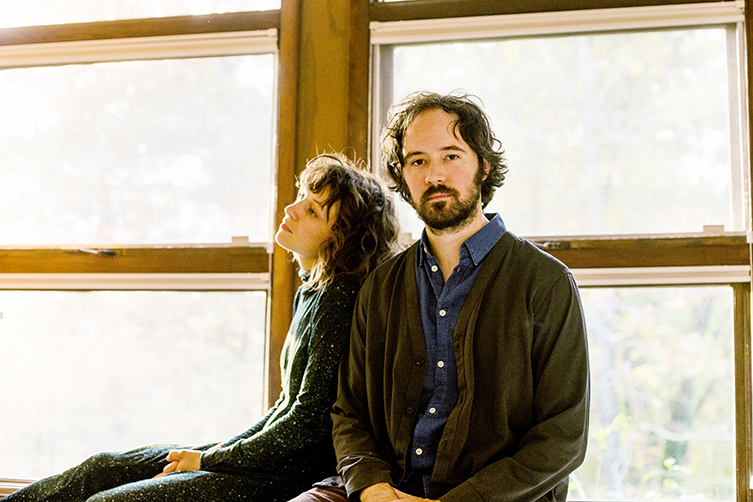
GG: And what type of acoustic guitars do you prefer to use?
AM: Kinda whatever is around these days. I’m a little more specific about which mandolins I like to play, but guitars, we got... have you heard of The Pre War guitar company? You know about those guys?
GG: We don’t really get them so much over here but I understand the concept of what they’re doing, yeah.
AM: Yeah. So, I’ve known Wes and Ben, the guys who own that company, for a long time and we’ve got a few of their guitars. They just always, right from the first time they string them up, they feel good and they sound good. They get that action the way you want it. Right now, those are my go-to. We’ve got a small body 000 that they make, and we’ve also got a big dreadnought, the 28 model.
GG: Cool, and what about for mandolins?
AM: I got a few of those. I have an old Nugget, an 85 from 1983 that’s a really good one. I’ve got a Lloyd Loar from 1924 that I really love to play, it sounds incredible. I just got a Gilchrist model 5 than Steve built for me over the pandemic actually.
"Between the hours of 12 and 4 in the morning, when the world feels like it's slowing down and sleeping, there's a lot of creativity just kind of floating around in the air, not being used."
GG: Oh, nice.
AM: Still getting to know that one, but it’s a beautiful instrument and he put a lot of tone into it.
GG: Sweet man, that’s a rare collection! And tuning-wise, I presume you do the normal mandolin tuning? The ‘backwards bass’?
AM: (laughs) I call bass ‘backwards mandolin’, haha!
GG: Haha, exactly!
AM: Yeah, standard G-D-A-E.
GG: And for guitars? Obviously with folk styles, that’s where a lot of open tunings come from.
AM: Yeah, I mainly do standard tuning, but I’ve begun to dive into DADGAD tuning, which is so fun! Especially in the last year and a half, I’ve started playing a lot more 12-string. To keep as many strings ringing as possible, I started doing that in DADGAD and it’s such a wonderful tuning.
GG: It’s beautiful, yeah. It lends itself so much to self-accompaniment as well, because you can get a lot out of not doing much with your left hand.
AM: I love that! It’s all right hand, yeah, which is kinda my focus anyway.
GG: Yeah! Now, the music you’re known for is predominantly acoustic and folk-based, though I know there are other elements in there. Is that a reflection of what you listened to growing up? And is that music – traditional folk- something that’s connected to your local area?
AM: Um, I didn’t grow up listening to much folk music. I grew up listening mainly to rock ‘n’ roll, had a huge metal phase in high school, you know? But I always gravitated towards, like, MTV Unplugged versions of songs, right?
GG: Ahhh, yes!
AM: Especially, I don’t know if you ever listened to the Alice in Chains MTV Unplugged?
GG: Oh yeah, I love Alice in Chains.
"That kinda surreal state of the imagination as a kid, that goes with you: that's one of my favourite parts about songwriting."
AM: So good! And so I think, even though I was listening to a lot of those records that had much heavier tones and a lot of electric guitar, whenever a band like Led Zeppelin would strip down and play, like, Going to California or something like that, those were always my favourite songs. I think, just because of that, there are a lot of influences that make their way into the folk music that we play. But those tones are just always what I’ve gravitated towards. I think theres really something magical about a lot of acoustic instruments working together. Hit a big mandolin chord and play a run and it’s making the guitar ring, and vice versa; the stand-up bass sounds like its miles deep. Yeah, I love electric guitar and think it’s such a useful tool and such a cosmic instrument but I think, for me, just hearing the pure tone of an acoustic guitar is just very stirring for me.
GG: Cool man.
AM: Long answer, but...
GG: Long answers are good!
AM: I didn’t start with folk music but now, I’ve definitely found a home with it.
GG: Okay, so what I’m reading in between the lines here is that you’re actually a frustrated doom metal, big riff guy and in a few years we’re gonna hear some massively heavy music coming from you right?
AM: Oh yeah, definitely! I’ll plug that mandolin in and we’ll get some distortion going! (laughs)
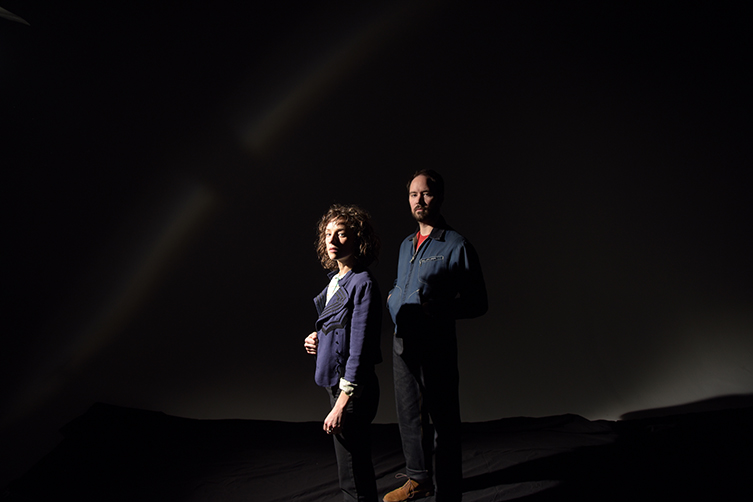
(Photo: Shervin Lainez)
GG: Haha, I knew it! So normally, whether you’re doing group or solo stuff, you’re used to being the producer on the project. This time, you used Josh Kaufman. How did it feel to not have to produce yourself, so to speak? And how was it, taking direction?
AM: It was a really natural process. Just getting to know Josh, really, we trusted him completely to come in and work with us, not work for us. He ended up playing a lot of organ and a little bit of electric guitar on the record too, but one thing I noticed was, it freed me up as a player. All of a sudden, all of these melodic ideas that I had, it wasn’t just on me to bring that to the band: I would talk to Josh about it and he and I both would figure out a way to either convey that to the other members or make it work or change it a little bit.
It was really nice having a partner in that and being able to navigate those ideas. Josh is just the most easy-going dude. I think he’s got a way of letting the music happen while also completely knowing which direction it’s gonna go in. That allowed me to trust my own instincts and also to trust the music that I was bringing forth and these songs that I had written.
But yeah, I definitely had a lot of questions going into it! I didn’t know if I was going to have to relinquish a lot of control, but it worked out great and Josh was super fun to work with.
"I love electric guitar and think it's such a useful tool and such a cosmic instrument but I think, for me, just hearing the pure tone of an acoustic guitar is just very stirring for me."
GG: Fantastic. And in the past, I know you’ve recorded live together as a band, all at the same time. Is that something that happened this time out?
AM: Yeah, pretty much what you’re hearing is just a live record. Most of the singing, all of the solos and playing are all done live and on the fly. Obviously, we’d go back and do some, like, percussion overdubs or a tiny string thing here or there. We’d usually put some 12-string guitar on there too, after the fact, but for the most part, the meat of the record is all done live, yeah.
GG: Wow, amazing! It’s like: the way they always used to do it is now kind of a rarity and it’s a feature of the recording when it’s like that. Anyone with a laptop and a couple of instruments can do their version of it, but it’s really something else to have everybody there and ready to play, all on the same page. That’s the difference, isn’t it?
AM: Yeah, I think so. I mean, we put together an amazing band of people who we trust completely, with an instrument in their hand and without. So, because of that, we’ve just created a really great bond with everybody we’re playing with, so when we’re not on stage, we’re probably sitting backstage playing music together. It’s that energy that we try to carry into the records as well, you know? We’re just sitting around playing and those recordings end up being what they are instead of us trying to dictate what that recording’s gonna be, if that makes sense?
GG: It does, it totally makes sense. It’s basically doing the hard work up front, haha! So, there’s one song from the new record that I hoped to briefly talk about if that’s cool? It’s mainly probably because of how I took it when I first heard it, it’s a song called Beautiful Flowers. Reading the press one-sheet, it mentioned about how the song was inspired by a butterfly getting squished in your car, right?
AM: Yeah, haha.
GG: So, the song’s not so much about that, but it was the inspiration, is that it?
AM: Yeah, I was just riding down the road and I saw this butterfly coming – or I guess I was going towards it – but whatever the case is, we were coming together (laughs). I couldn’t miss it, and it was this huge, beautiful butterfly, and just (slaps hands together) right into the windshield. I was like, ‘Ah, goddammit.’ That was a beautiful creature that I just destroyed in my search for convenience, you now, just to be able to drive down the road. Obviously, late at night I’d sit down to write that song with the total intention of paying homage to this butterfly and it ends up talking about the fuel industry and how, you know, cars are contributing to destroying our planet and all that good stuff.
But I feel like that’s one of the greatest things about songwriting too, is that it doesn’t have to be that specific. I think the music itself adds a lot of depth to what you’re saying, without having to say too much. I think that song is a good case point for that, where you just start off with an idea and the song itself will kind of almost tell you the way it wants to go, if you’re listening for it, which I try to do.
GG: Yes, certainly, that’s all part of the magic. And even the lyric about it being about the fuel industry and so on, the first couple of times I listened to the record, I wasn’t really paying attention to the lyrics and I felt like that song could have been like an elegy for a dead friend or something like that. About missing them, when the lyric talks about the colour, the beauty and how important it was.
"The song itself will kind of almost tell you the way it wants to go, if you're listening for it."
AM: Yeah.
GG: You kind of answered the question that I was yet to ask, which was kind of like: ‘Is that type of interpretive thing a deliberate part of your writing?’, and so it is, right?
AM: Ah, it definitely is, yeah. I agree: as I sing the song more – well, Emily sings it – but as we perform it more, it takes on different meanings. I think over the pandemic, it started taking on a completely different meaning, which is that we’re just a little flash of colour in this long game of the earth’s cycle, you know? And so, yeah, I think those little phrases and those little thoughts kinda help me throughout my days. They are little perspective shifts.
GG: That’s a really good way of summing up Watchhouse’s sound: the little thoughts and little lines that just help you through your day, right?
AM: Yeah, I guess so. Well, it’s been helping me for a long time so hopefully other people can derive something similar! (laughs)
GG: That’s what it’s all about!
AM: Yeah.
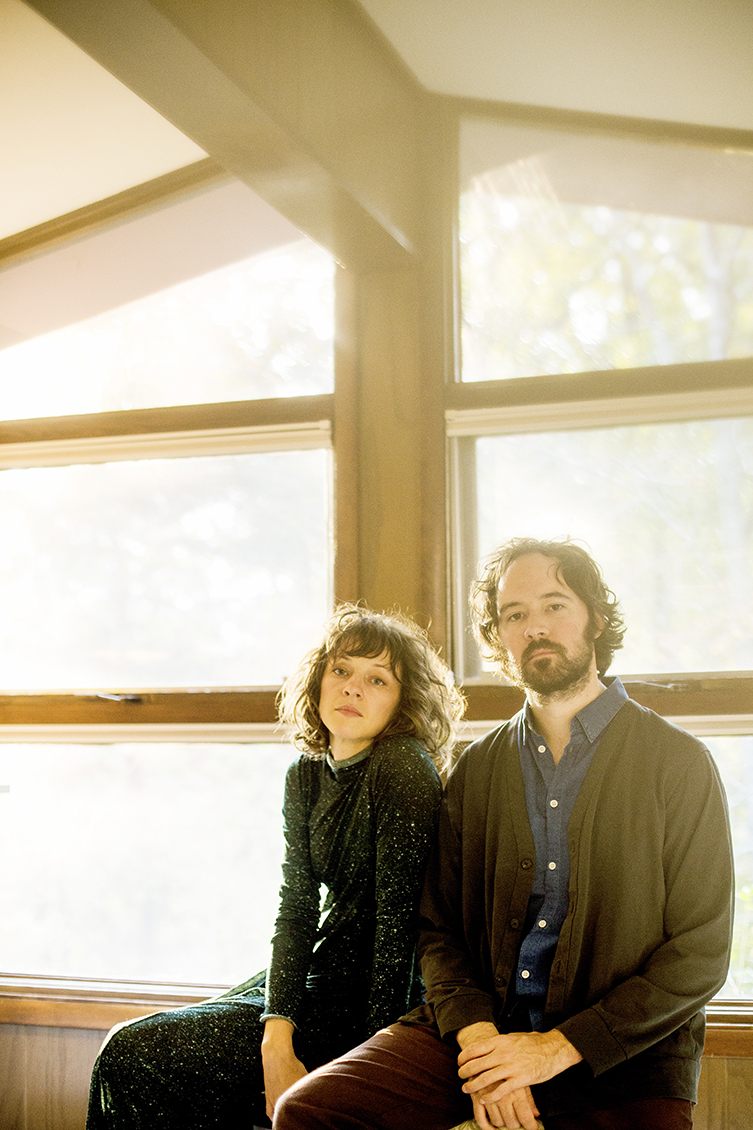
GG: So, just to round things off, the record is out in August, isn’t it?
AM: August 13th, yeah.
GG: And I don’t know exactly how things are over there in terms of the pandemic, but do you have tentative plans to take this one out on the road?
AM: Yeah I think it’ll be a while before we hit a big tour, but right now, we’re doing some festivals this summer and I know we’ve got some shows lined up in the fall as well. I think the main push will be 2022. And I think there are some plans to come your way next year!
GG: Fantastic! That’s something to look forward to!
AM: Aw man, I’ve missed it! I love travelling over there. I was talking to Emily about it a few days ago. It’s like, I’ve almost got this urge to, like, hop in a canoe and just go over there! (laughs) I miss it, you know? I wanna get over there and talk to the people, see the sights and have a good espresso.
GG: Yeah, man! Haha! The feeling’s mutual: I think we don’t miss places quite as much until we’re told we can’t go to them.
AM: Yeah, I think I didn’t think about it too much before, because we were just always over there, sometimes twice a year. This whole time away from our travels has been eye-opening. It’s like, ‘Oh, wait, we’re travellers and we don’t get to travel: this is crazy!’
GG: Yeah, well hopefully that’ll change soon for us all.
AM: Hopefully!
We’re sure we’ll see the Watchhouse guys over here soon enough, and until that day comes, there’s a brand new record to look forward to! Watchhouse is out on August 13th and you can keep up with it all over on the official Watchhouse website.
We’d like to thank Andrew for interrupting his parenting schedule to give us one of the most enjoyable conversations we’ve had in a while. Thanks to Ashley Matthews for putting us in touch. As ever, thanks also to you for reading another of our guitarguitar interviews! If you’re in the mood, you can find over a hundred more across at the guitarguitar interviews page. Stop back again for more interviews soon!
Until then
Ray McClelland

